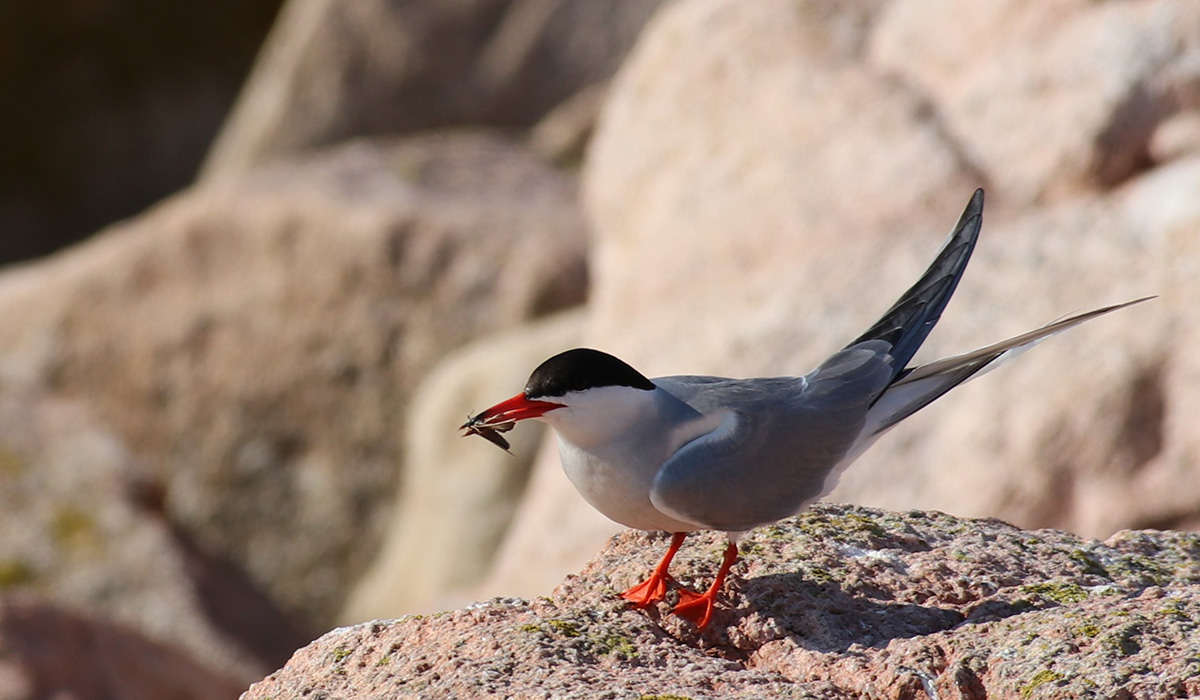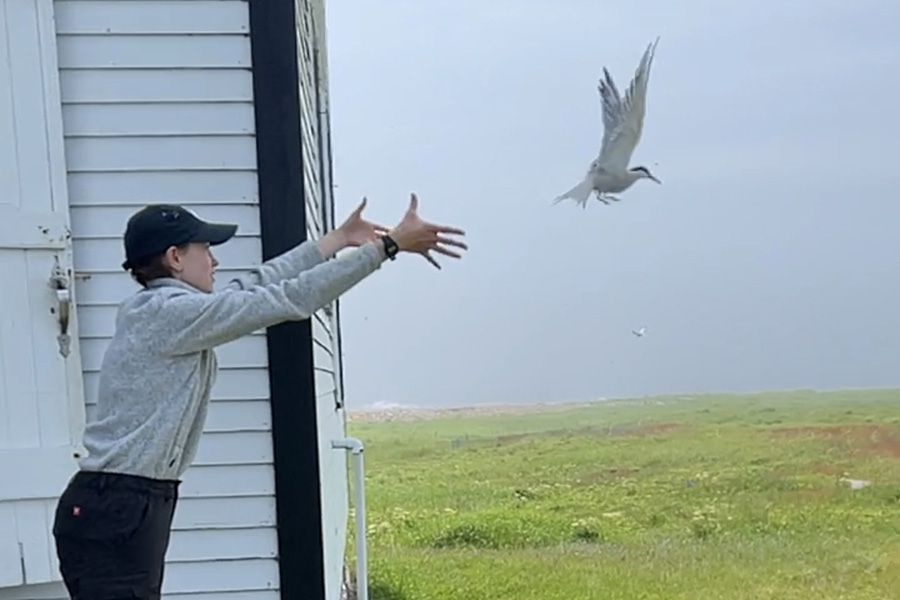
Environmental Studies Prof. Tasha Gownaris ’09 has received a 2023 Charles E. Kaufman Foundation New Investigator research grant, awarded by the Foundation’s scientific advisory board and the board of directors, to advance her research, “Behavioral Plasticity as a Mechanism for Adaptation in Rapidly Changing Environments.” Gownaris’ studies focus on the impacts of climate change on seabirds breeding in the Gulf of Maine. The two-year grant of approximately $150,000 will enable Gownaris to explore how seabirds adapt their foraging behavior in response to rapid shifts in the environment, referred to as behavioral plasticity.
“I am thrilled and honored to have received a Charles E. Kaufman Foundation New Investigator research grant and thankful to the Foundation for valuing research at primarily undergraduate institutions,” said Gownaris.
Gownaris uses a combination of tools to better understand how the diet and foraging behavior of seabirds is changing, including stable isotope analysis, chick provisioning watches, and GPS tagging. She presented the preliminary results of this research at the World Seabird Twitter Conference in 2022, sharing how seabirds’ responses to warming waters and shifting prey can impact the growth and survival of their offspring.

“The data we collect will also inform ongoing spatial management in the region, including the placement of wind farms that can alter seabird foraging behavior,” she said.
Funding from the grant will allow Gownaris to build and sustain her research program in collaboration with the U.S. Fish and Wildlife Service. She’ll also continue to engage current Gettysburg Environmental Studies Department majors and students from other departments in her research. Through this student-faculty research collaboration, Gettysburg College students will have the opportunity to build skills in fieldwork and data science.
“The funding from this grant will support the involvement of Gettysburg College students from multiple departments in meaningful research—whether in the field, in the lab, or at the computer,” said Gownaris. “Several students will complete capstone projects or honors theses connected to the project and will have the opportunity to present their work at professional conferences.”
The Charles E. Kaufman Foundation, a supporting organization of The Pittsburgh Foundation, supports research, like Gownaris’ work, in biology, chemistry, and physics at Pennsylvania institutions of higher education. Foundation grants provide funding support for new investigator and new initiative research.
By Michael Vyskocil
Photos provided by Environmental Studies Prof. Tasha Gownaris ’09
Posted: 12/15/23